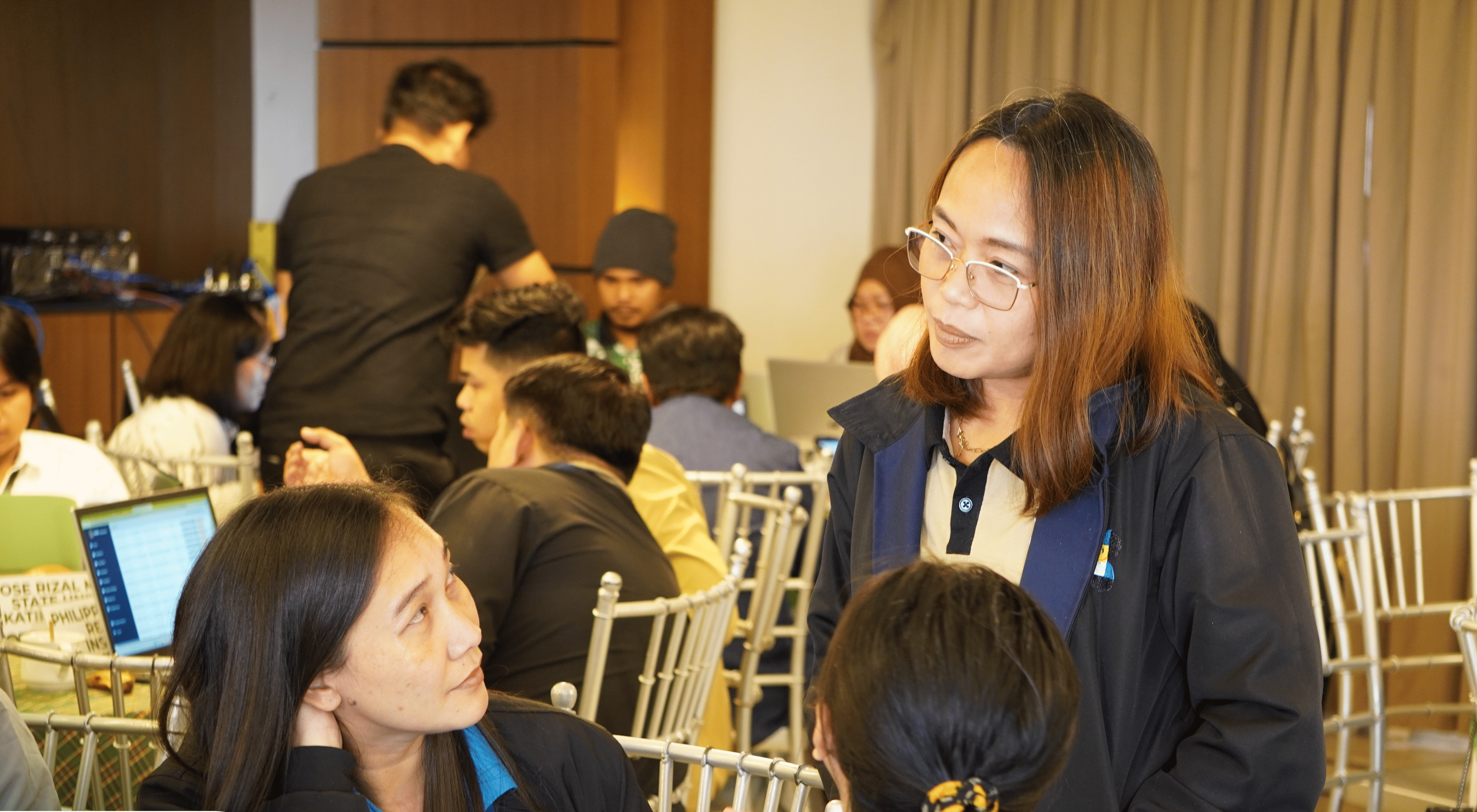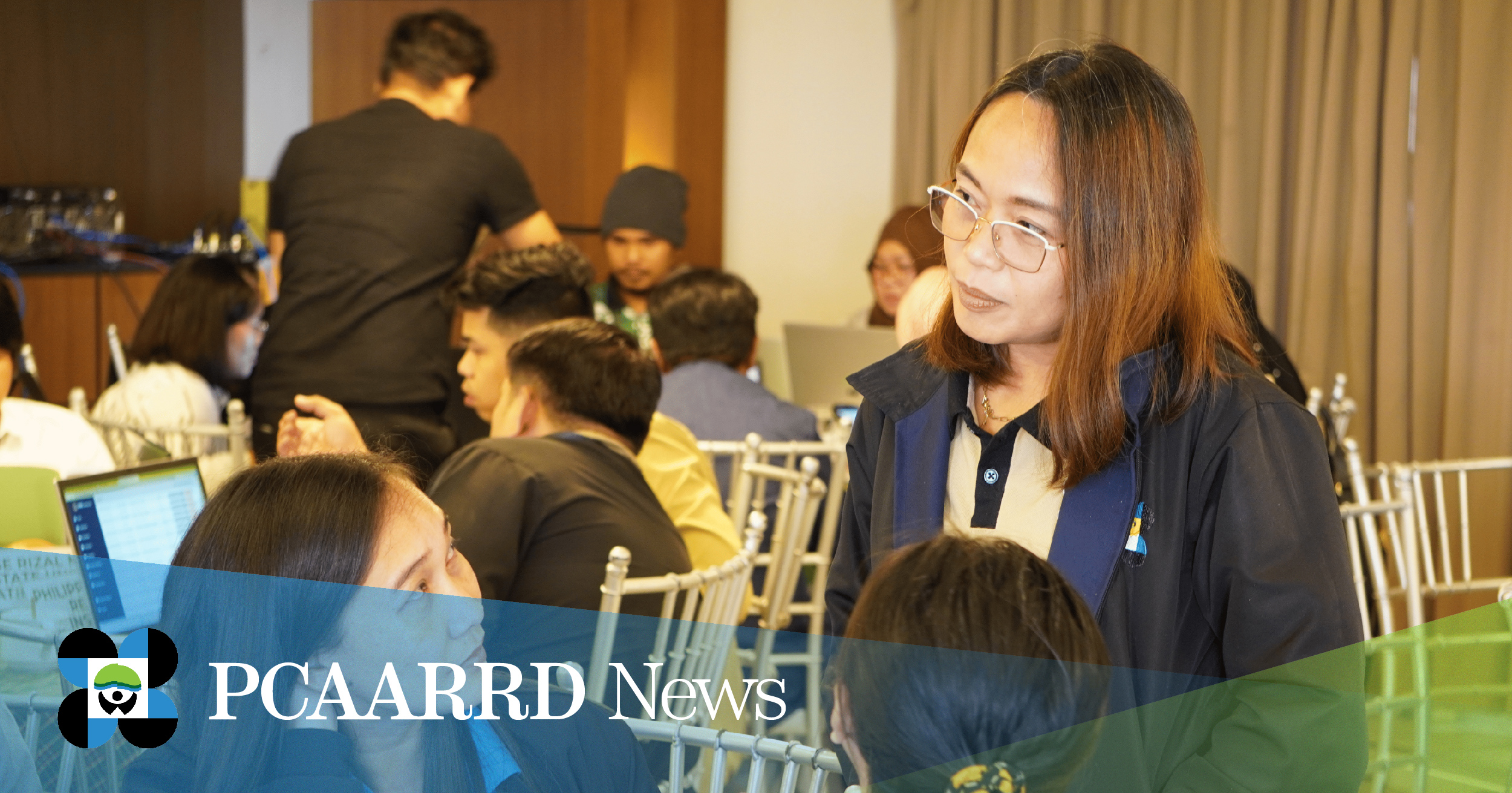More researchers across the country are being capacitated in crafting industry-driven research and development (R&D) proposals on coconut hybridization through the Coconut Hybridization Program (CHP) Research.
The CHP Research is a program under the Coconut Farmers and Industry Development Plan (CFIDP), managed by the Philippine Council for Agriculture, Aquatic and Natural Resources Research and Development of the Department of Science and Technology (DOST-PCAARRD).
As part of its regional information caravan and proposal writeshop series, DOST-PCAARRD’s Crops Research Division (CRD) recently visited the cities of Batac and Zamboanga to engage with participants from research and development institutions (RDIs) and state universities and colleges (SUCs) from six regions in Northern Luzon (Ilocos, Cagayan Valley, Central Luzon, and Cordillera Autonomous Region) and Mindanao (Zamboanga and the Bangsamoro Autonomous Region in Muslim Mindanao). CRD also provided information about the available grants under CHP.

DOST-PCAARRD Executive Director Reynaldo V. Ebora highlighted that the initiative’s goal is to foster collaboration and provide S&T-based solutions to overcome the identified gaps and achieve the objectives of CHP.
“Following the successful roll-out of our information caravan and proposal writeshop in the National Capital Region, Southern Luzon, and the Visayas Islands last year, we expand our reach and aim to continue the mission of capacitating more researchers and extension workers in writing proposals and implement R&D programs and projects on coconut hybridization,” Dr. Ebora added.
During the program, officials and representatives of the Philippine Coconut Authority (PCA) Regional Office gave an overview of the status of the local coconut industry, highlighting the challenges and opportunities for research and collaboration.
PCA representatives reported that the country requires 112 million nuts to replace senile palms and expand plantations, augmenting the current market demand for products and planting materials. To address this, they encouraged the researchers to foster stronger collaboration with the Council to maximize the potential and promote the adoption of high yielding and early bearing coconut hybrids.
PCA BARMM Representative Nur-Aina B. Ingkagan pushed for enhancing BARMM’s coconut supply chain by focusing on value addition through innovative processing, as current local farmers’ engagements are limited to charcoal, copra, nut trading, and sugar production.
Meanwhile, PCA Region IX Representative Erell Jamaica Tapayan urged the participants to forge partnerships in developing technologies to support hybridization efforts in the region. These collaborations will be crucial in advancing Zamboanga Peninsula’s on-farm seed nut production and establishing seed farms for open-pollinated varieties (OPV) and hybrid varieties.
Industry Strategic S&T Program (ISP) Manager for Coconut Alissa Carol M. Ibarra emphasized DOST-PCAARRD’s strong commitment to collaboration and support beyond CHP Research, as the Council also offers R&D grants for coconut and other priority commodities.

CRD Director Leilani D. Pelegrina called for harmonized and complementary R&D proposals with tangible goals. She also expressed hope for the participating institutions to be included in CHP Research’s network of implementing agencies and highlighted the opportunity to enhance their expertise in hybridization R&D through mentorship from PCA and DOST-PCAARRD.
The Council received a total of 67 proposals and reached 57 SUCs and RDIs from the two regional information caravan and proposal writeshops.

